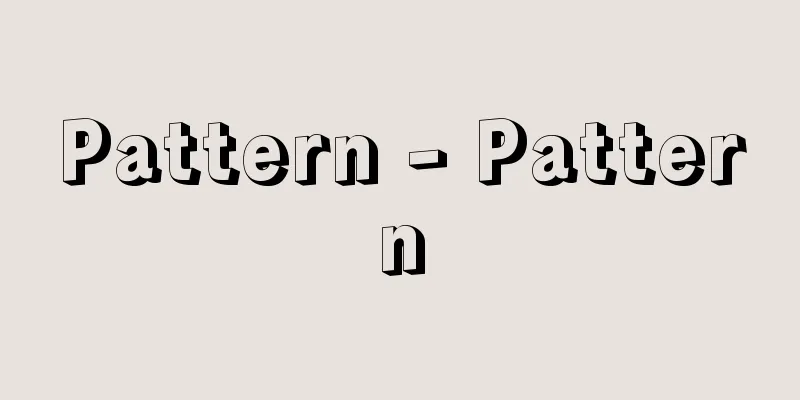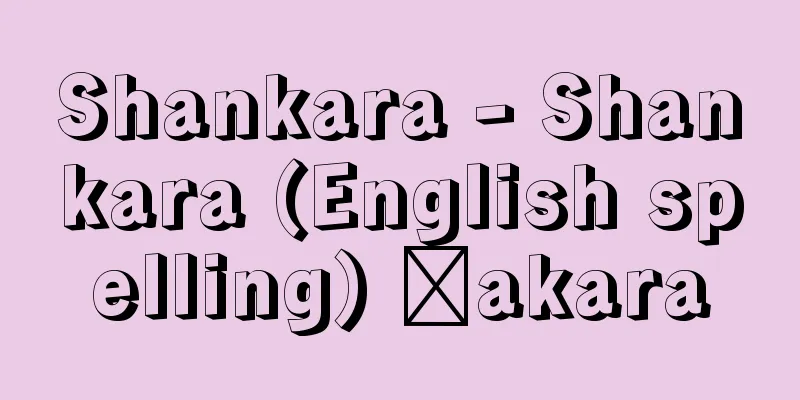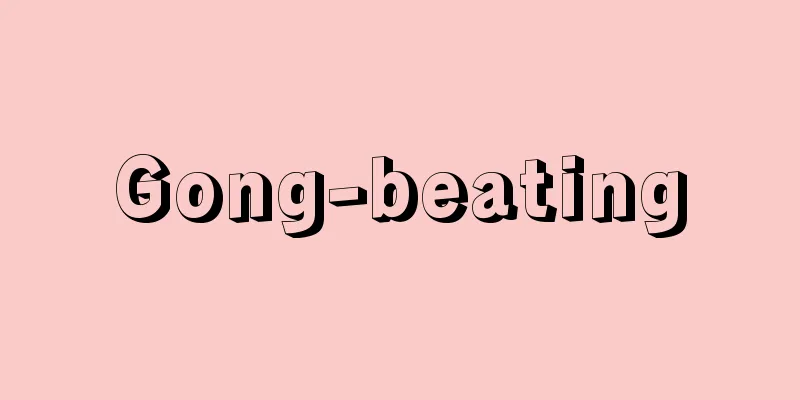Pattern - Pattern

[1] 〘 suffix 〙 (same origin as kara (pattern)) Used after a noun to express the inherent qualities, character, status, etc. of that thing, or to express the appropriateness of those qualities, character, status, etc., or to express that state. Used in expressions such as "personality," "family background," "status," "relationship," "national character," "place character," "voice character," and "season character." ※Utsubo (around 970-999) Kuniyori-jo "It is not from any place that we are still as lonely." [2] 〘 noun 〙 ((1) used independently)① Physical appearance. Used when referring to size. ※The Crab Cannery Ship (1929) by Takiji Kobayashi, 9 "There are now many female crabs with small bodies."② The quality or character that a person is inherently endowed with, or that can be sensed from a person's appearance or attitude. In modern times, it is often said that a dance is suitable for a person's current status, position, and lifestyle. →It is not even suitable for his/her style. ※Shoo Shinji Noh Hyōban (1653) Kamo "He only focuses on the highest rank, has the best style , and is gentle in his dancing." ※Fukai Kyo Waranbe (1886)〈 Tsubouchi Shoyo〉5 "I think that a show of intimidation is more in his nature ." ③ It refers to the pattern of cloth, textiles, etc. ※Takekurabe (1895-96)〈Higuchi Ichiyō〉1 "He likes the style, so he wears a wide obi." [Additional notes] (2) ② is similar to "hin (quality)," but "quality" refers to what a person has inside, and is said to be "having quality or not." In contrast, "gara" refers to the impression that is shown on the outside, and is said to be "good quality" or "bad quality."From [Pattern]Hey [pattern]E [pattern]Kaikakahi [Pattern]Mold [pattern]Source: The Selected Edition of the Japanese Language Dictionary About the Selected Edition of the Japanese Language Dictionary Information |
[1] 〘接尾〙 (「から(柄)」と同語源) 名詞の下に付いて、その物事の本来持っている性質、品格、身分などの意、また、それらの性質、品格、身分などにふさわしいこと、また、その状態の意などを表わす。「人柄」「家柄」「身柄」「続柄」「国柄」「場所柄」「声柄」「時節柄」などと用いられる。※宇津保(970‐999頃)国譲上「なほ同じやうにわびしく侍るは、ところからにも侍らず」[2] 〘名〙 ((一)が、独立して用いられたもの)① 体つき。なり。大小という面からいう場合に用いる。※蟹工船(1929)〈小林多喜二〉九「身体(ガラ)の小さい女蟹ばかり多くなったので」② その人に本来そなわっている、また、その人の身なりや態度から感じられる品や性格。現代では多く、その人の現在の身分、地位、生活態度などにふさわしいかどうかという面からいわれる。→柄にもない。※承応神事能評判(1653)加茂「ただおしたての位を専とす、一番の柄(ガラ)をよく、物やさしく舞を本とす」※諷誡京わらんべ(1886)〈坪内逍遙〉五「寧(むし)ろ虚喝(ほら)の方が持質(ガラ)にあるかナ」③ 布、織物などの模様をいう。※たけくらべ(1895‐96)〈樋口一葉〉一「がらを好みて巾広の巻帯」[補注](二)②は「ひん(品)」に類似するが、「品」はその人の内面的に備わっているものをいい、「品がある/ない」という。それに対して「がら」は外に表われた印象からいうもので、「柄が良い/悪い」という。
から【柄】へい【柄】え【柄】かい かひ【柄】かび【柄】出典 精選版 日本国語大辞典精選版 日本国語大辞典について 情報 |
>>: Tsongkha-pa (English spelling) Tso kha pa
Recommend
Positive law - positive law
A law that is practiced in a certain era and in a...
Wimshurst, J.
…Today, large generators are insulated with sulfu...
Lewis, G.
…Dizzy Gillespie, known as Parker's good budd...
Ashiya Children's Village Elementary School - Ashiya Children's Village Elementary School
...The education there respected the freedom to c...
Many-valued logic
In logic that assumes the law of the excluded midd...
Phonetic Kana - Ongana
〘Noun〙 When written in Man'yōgana, that is, wh...
ālāpti (English spelling) alapti
… [Karnataka and Hindustani music] Due to differe...
Graves - Robert Ranke Graves
British poet. Born on July 24th in Wimbledon to a...
Fish and rice town - Fish and rice town
…Population: 760,000 (1994). Located southeast of...
Braid, J.
…Although this therapy has died out, it cannot be...
Semenov
Russian physical chemist. Graduated from Petrogra...
Pacycerianthus magnus (English spelling)
…The purple anthias Cerianthus filiformis is purp...
Amboina [island] - Amboina
→Ambon [Island] Source : Heibonsha Encyclopedia Ab...
Hitoshi Yamakawa
Socialist. Born December 20, 1880 in Kurashiki, O...
motetus
...This is the original form of the motet. A coun...


![Showa [town] - Showa](/upload/images/67cbe156c102c.webp)






